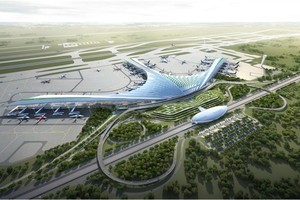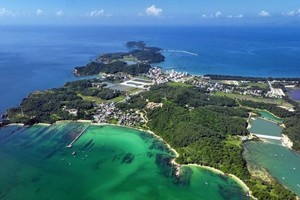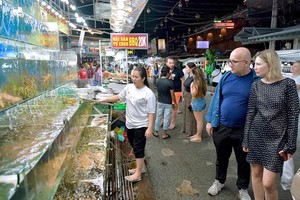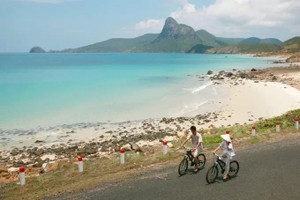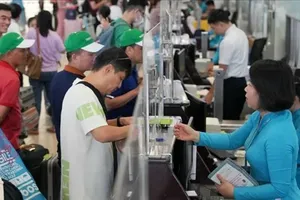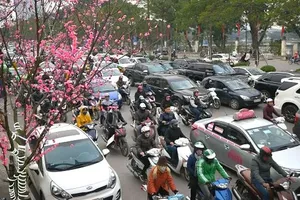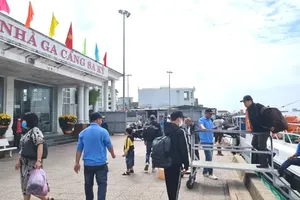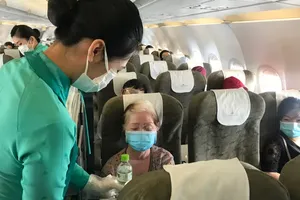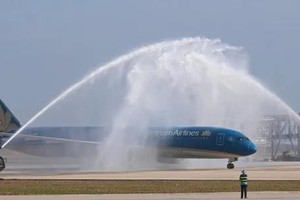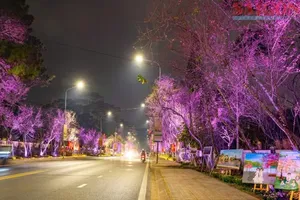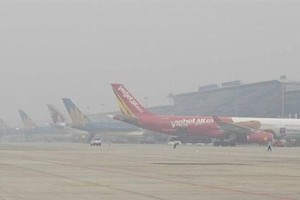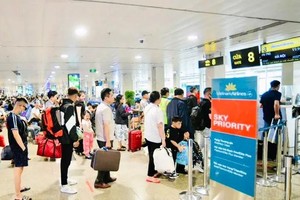
At a workshop on smart tourism held by Vietnam National Administration of Tourism and the management board of Hoa Lac Hi-Tech Park in Hanoi yesterday, Mr. Vu The Binh, standing deputy chairman of Vietnam Tourism Association (VITA) quoting data from VECOM said that at present only over 10 Vietnamese firms supply online travel service.
They comprising vivu.com, chudu24.com, mytour.vn, tripi.vn, gotadi.com, vntrip.vn have mainly served local market with low transaction number.
According to Mr. Binh, at present 100 percent of travel firms are paying attention to using the Internet in trading and advertising activities. Still, their IT application has just stopped at basic level and yet to optimize exploitation of technology advantages in competition, customer attraction and business management.
Deputy Minister of Science and Technology Pham Dai Duong, head of Hoa Lac Hi-Tech Park management board, said that industry 4.0 has strongly impacted all faces of social life and economic sectors, changed operation models of companies in most fields. The global tourism market has witnessed a change with the coming to the throne of online travel business trend.
Nielsen Company reports that the world’s online travel sales last year increased 13.8 percent with the value approximating US$565 billion. Asia-Pacific market has risen to lead the world in online tourism in 2017.
In Southeast Asia, Google forecasts that the online travel value will increase to $22 billion in 2015 and $90 billion by 2025.
Mr. Nguyen Van Tuan, head of Vietnam National Administration of Tourism, said that industry 4.0 has posted both opportunities and challenges for the Vietnamese tourist industry. The market has changed because of technology development, especially the fast growth rate of online travel.
The fact forces all elements in the tourist industry from authorized agencies to businesses to implement digital transition as soon as possible toward establishing an integrated and smart data exchange system of Vietnam. The smart data exchange system will unify the huge scattered tourist data now, built and exploited by all parts in the industry to create added value for tourist products and services thanks to the possibility of personalizing tourists’ trend and demand.
Directive 16 of the Prime Minister on intensifying access ability to industry 4.0 and minimizing negative impacts of this wave in Vietnam points out that tourism is one of economic industries which will receive priority in building a strategy on digital transition and IT application to boost smart tourism in Vietnam.
That is an important policy to obtain targets by 2020 that Vietnam will attract 17-20 million international visitors and serve 82 million domestic visitors, higher than 10 million and 62 million in 2016.
By 2020, the industry will contribute over 10 percent of Gross Domestic Product, get the revenue from of $35 billion and create about four million jobs including 1.6 million direct jobs.
